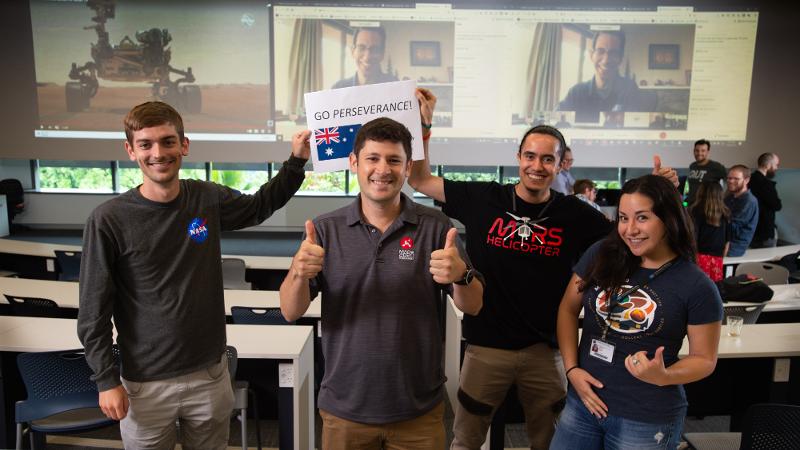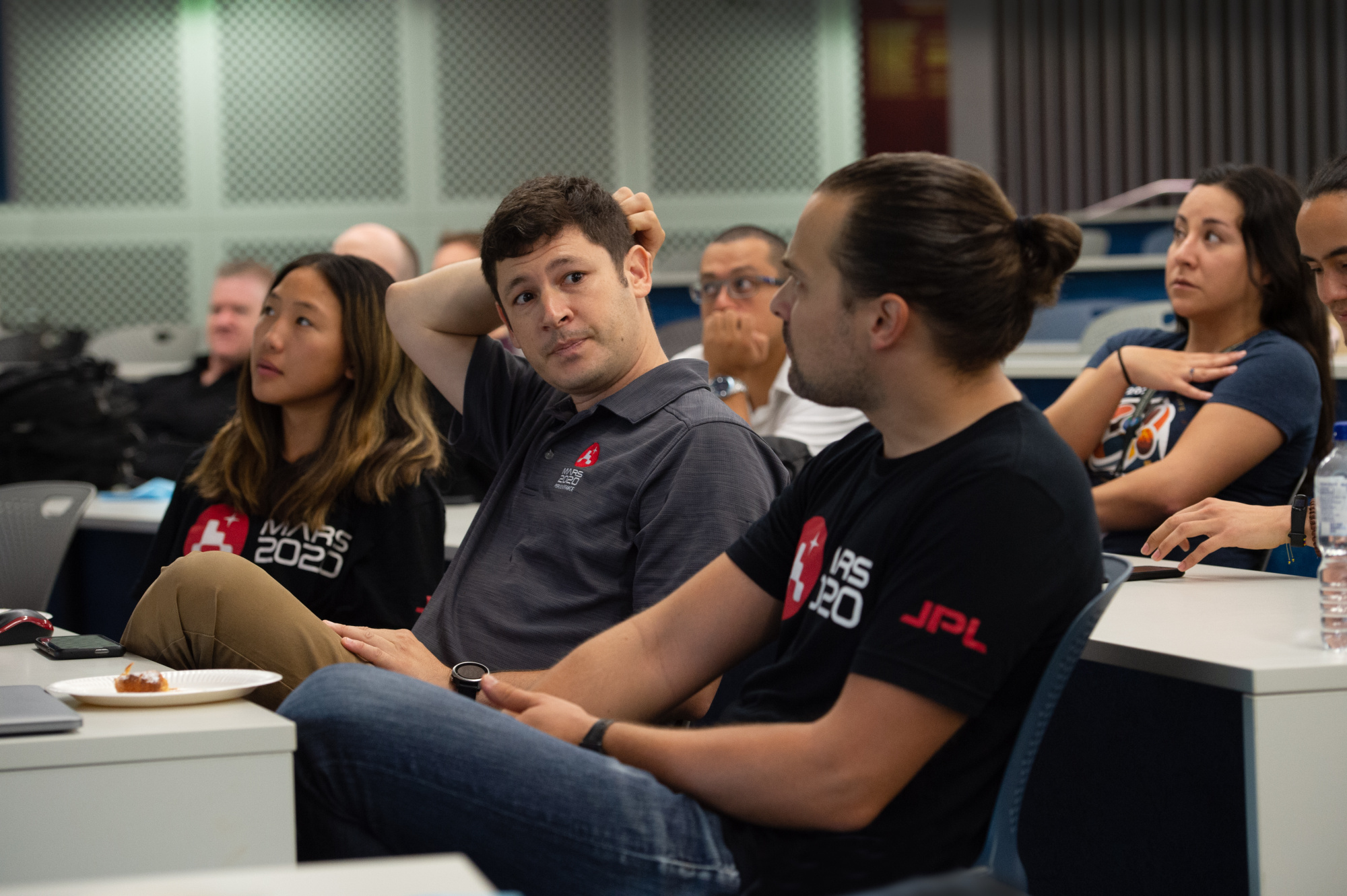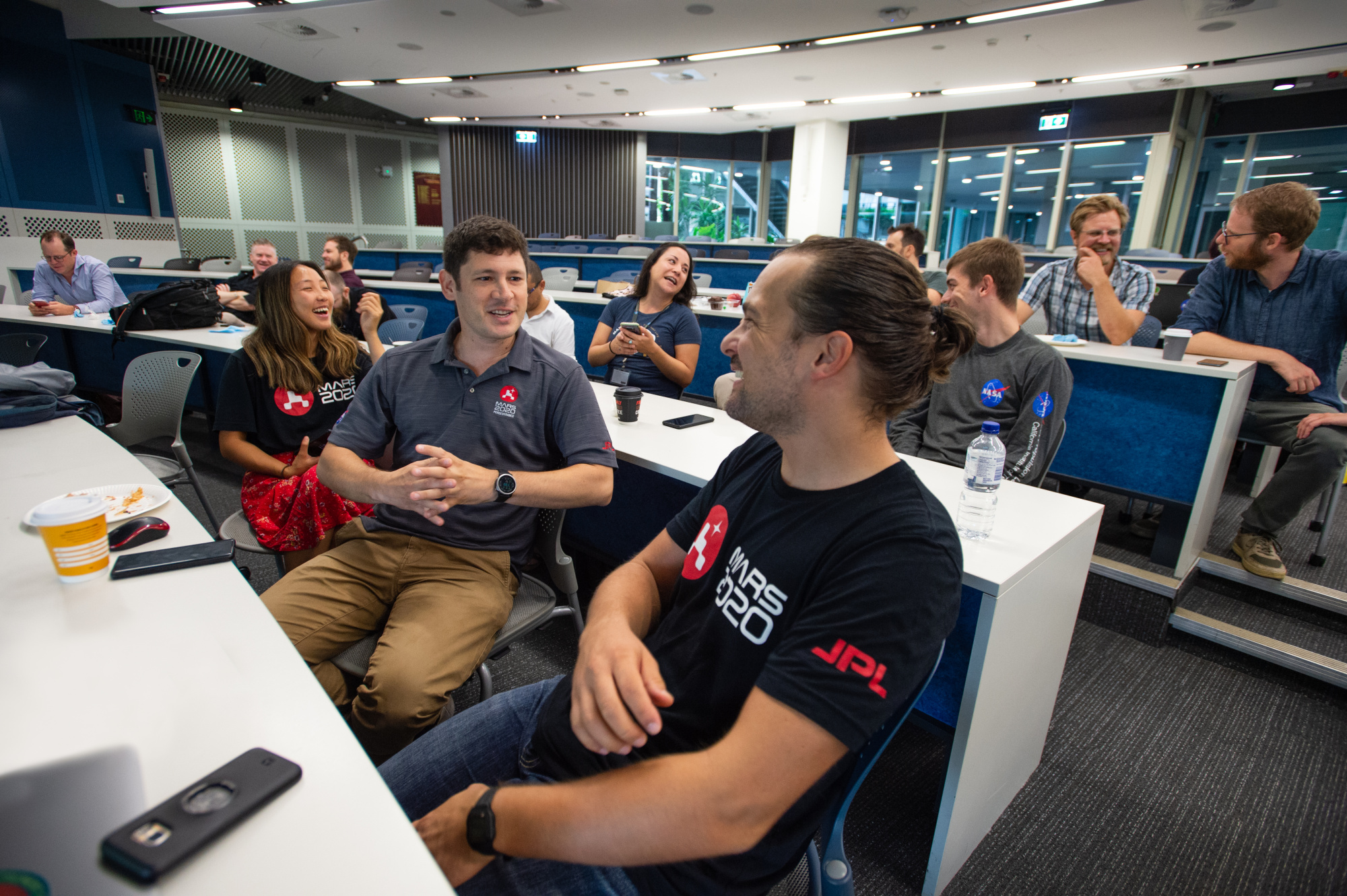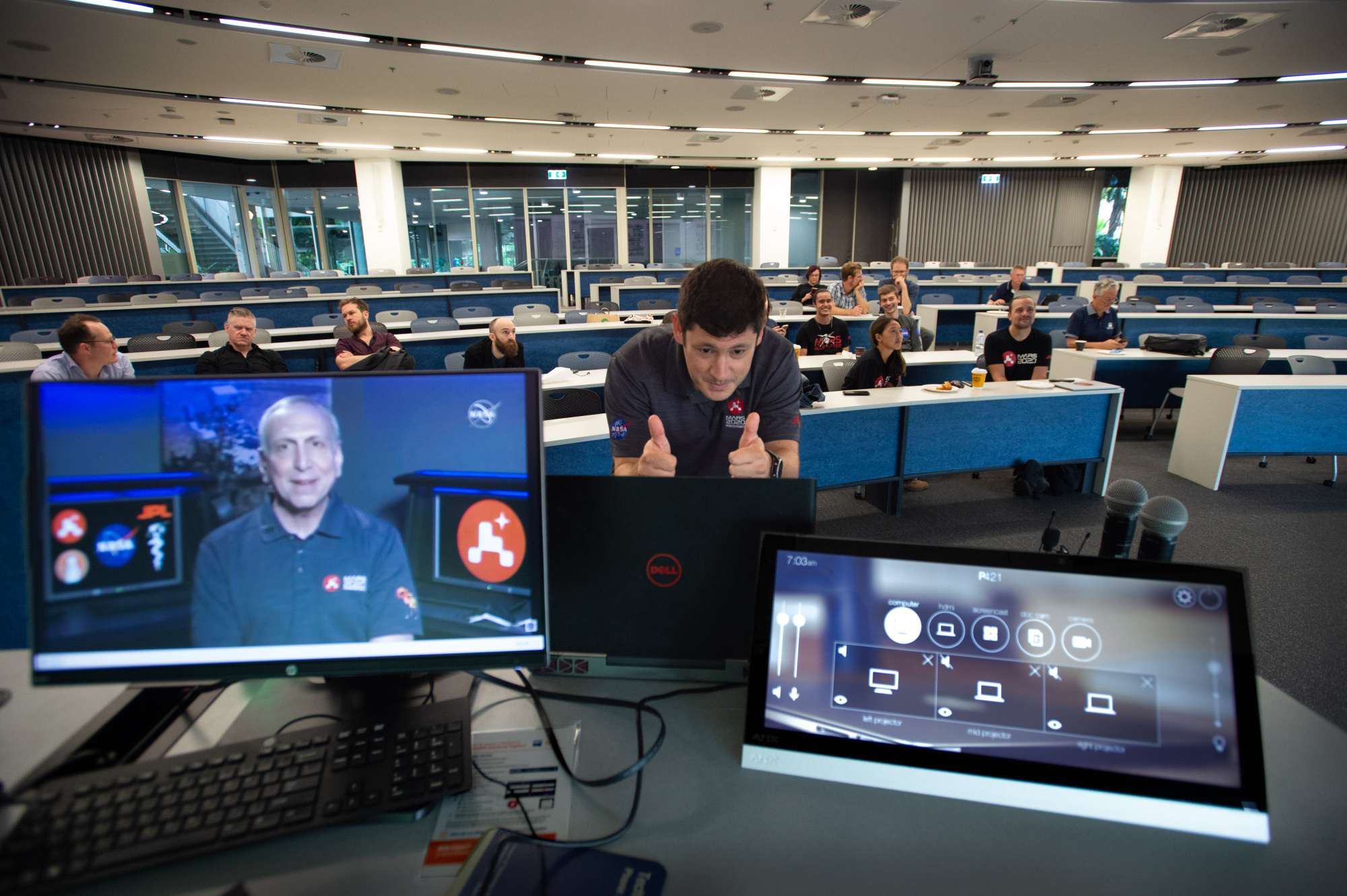
QUT researchers are now ready to play their part in NASA’s search for signs of ancient life of Mars with the successful touchdown of the Mars Perseverance Rover today.
The Perseverance Rover (Mars 2020) successfully landed on the surface of Mars after a 470 million kilometre journey. The rover, in its mission which is due to last at least one Mars year (687 Earth days), will search Jezero Crater for signs of ancient life and collect samples that will eventually be collected and returned to Earth.
QUT's Dr David Flannery is a member of the Perseverance science team, a Long-Term Planner for the mission, and a Co-Investigator of a rock chemistry instrument aboard the rover which is led by QUT alumnus Dr Abigail Allwood at NASA Jet Propulsion Lab (JPL).

PIXL is an elemental chemistry instrument on the arm of the Perseverance rover which will determine the composition of Mars rock, looking for signs of ancient microbial life in the rocks and helping to characterise samples for caching.
A group of QUT researchers and students, including PhD students Vanessa Zepeda and Brendan Orenstein, researchers at the QUT Centre for Robotics, and undergraduate students studying Earth Sciences, will work with NASA JPL on a project that will help guide the rover on its key astrobiology task.

Dr Flannery said the feeling was one of relief with the rover landed safely on Mars after the “seven minutes of terror” of the entry, descent and landing phase of the mission.
“I’ve been working on this for nearly 10 years, so it was an exciting moment,” he said.
“It probably will be the pinnacle of my work in this area. This is probably a once in a lifetime event.”
The QUT researchers and students will be studying the interaction of Mars analogue rocks and x-rays generated by analytical instruments on the rover’s arm.
“We can see we’ve landed safely, and we can see that we’re in a nice flat area with some interesting rocks to investigate,” Dr Flannery said.
“Students are applying this new knowledge directly to the exploration of Mars as they participate in the day-to-day science investigations of the rover,” Dr Flannery said.
Students will also be working with Dr Flannery and QUT’s robotics group to build and operate similar instrument platforms on Earth, including a prototype Mars helicopter.
Dr Flannery said taking part in this mission was great opportunity for Australian scientists, and several Australians were involved because of our expertise in ancient rocks.
“We have some of the oldest rocks on Earth in Australia and we will be looking at rocks that are of a similar age,” he said.
“We will be looking for habitable environments in this early period of our solar system’s history, and what we really hope to find is some evidence of life in these ancient environments.
“With this mission, there is the opportunity to answer the profound question of whether life existed elsewhere in our solar system.”

Media contact:
Rod Chester, QUT Media, 07 3138 9449, rod.chester@qut.edu.au
After hours: Rose Trapnell, 0407 585 901, media@qut.edu.au



